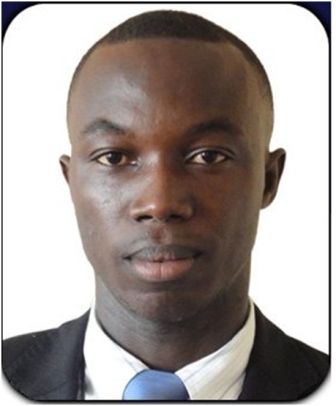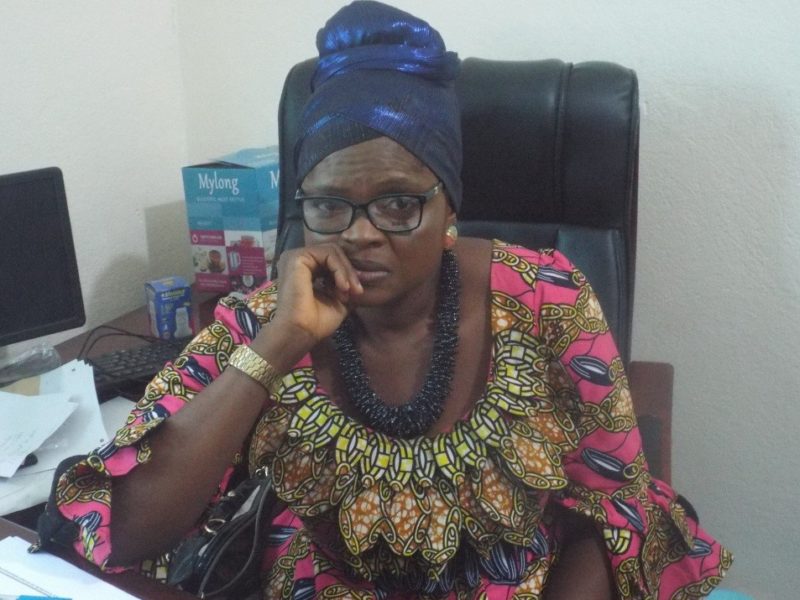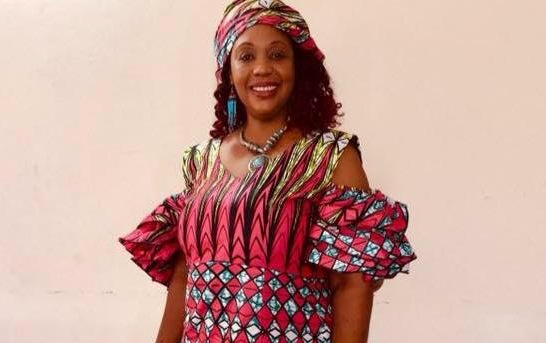The need for Women’s inclusion into mainstream politics
Women all over the World, but particularly in Africa, have been marginalized by men because they were considered as kitchen utensils and child bearers. In Europe and America, male chauvinism kept women back from participating in activities gearing towards development. Women started gaining prominence when activists such as Rosa Parks during the civil rights movement in America, and Chief Ella Koblo Gulama of Sierra Leone rose to unforeseen challenges in order to create a competitive platform for both males and females. It is now universally accepted that the need to include women into mainstream politics is no longer a matter of discussion. (Photo/ Elkass I L Sannoh, author)
Struggles for women’s rights over many decades have marked women’s political empowerment as a high priority. These took place mainly because it became evident that unless women have the right and power to contribute in policy making and to legislate for themselves, they will have to wait and depend on others to do it for them. As long as women remained excluded from participation in Parliaments, form political processes, and therefore from making or amending legislation, they had to depend on male legislators’ agreement to legislate in favour of women. This dependency on others’ goodwill or agreeing to bring change to women’s lives, as experience goes, failed to yield the desired results. For in most cases, the analysis of the position of women from the others’ point of view, particularly informed by patriarchal values, lacked a holistic vision which led to fragmental, partial and monolithic attempts to remedy the disadvantage, discrimination and exploitation suffered historically by women. They failed to capture the multi-dimension of women’s disempowerment. The 19th century witnessed the starting of women’s struggle, mainly for economic liberation and for educational opportunities. Soon the realization came that without a strong voice in the decision-making processes, no matter how much income a women earned or how highly she was educated, exploitation of and discrimination against women would not see its end. Rather, in many cases it was seen to widen the scope for treating women as more usable commodities.
The Voiceless has come to the realization that the participation in civil society movements and mobilizations, demands for the right to vote, legal equality or the right to be elected to parliaments and governments were among the important aspects of women’s role in politics. Needless to say even the passage to women’s right to vote was not smooth at all let alone right to legal equality and right to be elected, which in many ways still remain dreams to be realized. The ferocity of the opposition to women suffrage and the lengths to which women had to go to secure the right to vote in Parliamentary elections reflects first of all the extent to which women were conceived of as ‘backbenchers’.
The Voiceless is clamouring to see a huge statistical picture of women’s participation in active politics in Sierra Leone. It is unarguable to say that despite all these, women are still kept out of the decision making process. Most of the women Members in the current Sierra Leone House of Parliament are apprehensive of taking part in discussions that may hurt the feelings of their party leaders by whose grace they think they have gained their position. The point The Voiceless want to make here is that the quantity of participation by women is not completely to be ruled out as that definitely gives them a sense of strength and solidarity, but at the same time it is important for them to go through proper processes, for example, through direct election with a defined constituency to get a stronger feeling of solidity of base. More importantly, the mindset of the fellow political leaders and determination of the leadership to give support to women are extremely vital factors here. Creation of enabling environment is essential which needs to be observed and protected with a firm conviction. This is one of the necessary internal conditions to ensure quality participation of women in politics.
Beyond the ballot box, other consequence of this is that the political sphere remains under the dominance of few women linked to power through family, business, finance or social position leaving out many of those who are genuinely politically committed. Therefore, the role these women tend to play is characteristically defined by the motivation for preservation and protection of their family, party, financial or class interests. Another important factors here is that since their powerbase is not sown in popular support, they suffer from a sense of insecurity, which work as a hindrance to their ability to deliver in the face of serious challenges posed by the society.
According to Nobel Prize winner Amartya Sen, mortality, natality, basic facility, special opportunity, professional ownership and household are the areas where women suffer inequalities, therefore, encapsulating the entirety of their lives. Sen goes on to establish, “In some regions in the world, inequality between women and men takes the brutal form of unusually high mortality rates of women and women and a consequent preponderance of men in the total population.” There are situations where girls have far less opportunity of schooling than boys. This is true of higher education as well as employment. Demanding equality in property ownership may be considered sacrilegious and hence a punishable offence. Division of labour is very common in many societies and it is common to take it for granted that all household works are the responsibility of women. We are reminded by Sen that it is sometimes presumed that there are more women than men in the world, which may be true of Europe and North America having a female to male ration of 1.05 (that is 105 women per 100 men). But women do not out-number men in the world as a whole. In fact, there are only 98 women per 100 men on the globe. One must, however, remember that all socio economic – political and cultural conditions have to be conducive to generate and sustain a sense of participation as well as ownership in women’s minds to enable them to contribute in public life.
If the public sphere is reflected as predominantly a male domain and women are treated as intruders, which has been the case historically, neither the number nor ability of women will have any use there. To counter that, clear manifestation of the will of the society to ensure congeniality of environment must be evident in the policies and practices of the state, as well as in the municipal laws of the countries. Rights and dignity of the people must be protected and perpetrators punished to help prevention of violence in due process. Role of the regional and international laws and treaties cannot be undermined either. Vienna Declaration must be fully ratified and implemented to provide women with the required support. All these may sound a little abstract in relation to women’s performance as political actors, but the abstract and the practical is interwoven and will strengthen each other. The Voiceless want to reiterate that gender is not only about women and democracy is definitely not exclusive of gender. To experience the full benefit of women’s inclusion in national politics, it has to be embedded in political stability, democracy, good governance, transparency and accountability as these are the most important determinants of human rights, justice and peace.
The Voiceless authoritatively say that the expansion of women’s capabilities (both quantitative and qualitative) not only enhance women’s own freedom and well being, but also has many other effects on the lives of all. The Voiceless cannot rest without acknowledging the participation of the deceased MP of Constituency 001 in Kailahun, Mrs. Alice M. Foyah, the founder of Campaign for Good Governance (CGG) Zainab Hawa Bangura and Madam Nemata Walker of 50/50 Group etc.
With Elkass I.L.Sannoh, Pen of The Voiceless
Stay with Sierra Express Media, for your trusted place in news!
© 2013, https:. All rights reserved.






